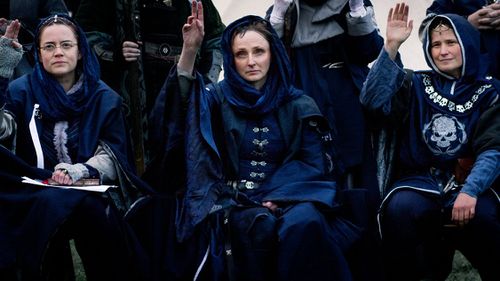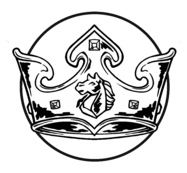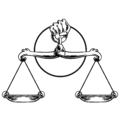Assembly

Overview
The Synod is divided into many distinct assemblies, each of which has differing powers, responsibilities and roles in ensuring the virtue of the Empire. The purpose of the Assemblies is to ensure that power is vested in those best placed to judge a matter - for example, the Marcher National Assembly, composed of Marcher priests is responsible for the virtuous behaviour of the Marcher generals as well as Marcher national titles.
Every Member of the Synod is automatically a member of the General Assembly as well as the relevant national and virtue assemblies.
Each Assembly has a common symbol used by the Civil Service to help mark Judgements submitted for it, in order to allow Members to quickly identify them. These symbols are by no means definitive symbols for each nation, virtue or otherwise - rather they are common symbols adopted by the Civil Service for this purpose.
General Assembly
The General Assembly is the largest and most senior of the assemblies of the Synod. The authority of the judgements made by the General Assembly extend to the whole Empire, including the Throne and its judgements stand in authority over those made by any other Assembly.
Every citizen of the Empire who has responsibility for a congregation is a member of the General Assembly. They receive a number of votes in proportion to the size of their congregation when they attend Anvil.
The National Assemblies
With the establishment of the Imperial Orc Assembly in Winter 377YE there are ten national assemblies, one for each nation of the Empire. A national assembly consists of all members of the Synod of that nation. Members of the assembly may cast a number of votes in proportion to the size of their congregation or sinecure when they attend Anvil.
Each assembly is charged with the spiritual well being of the nation it is responsible. The authority of the assembly's judgements extend only to individuals and groups from that nation.
The Wintermark assembly has an additional role; maintaining the Chronicle of Heroism.
The Virtue Assemblies
There are eight virtue assemblies, one for all the priests of each of the seven virtues and the Assembly of the Way, for all priests who do not prioritise a single virtue. Members of the assembly may cast a number of votes in proportion to the size of their congregation or sinecure when they attend Anvil.
Each virtue assembly elects a cardinal from their number to sit upon the Assembly of the Nine. The cardinal is then responsible for selecting a gatekeeper from their assembly. The gatekeepers of virtue are collectively responsible for apportioning the True Liao.
Each assembly is charged with providing guidance and spiritual teaching for their virtue, as well as ensuring the virtuous behaviour of those citizens who profess to follow it. Characters of any virtue - or none - are subject to the oversight of any virtue assembly, but by definition they are expected to concern themselves only with matters pertaining to their virtue.
A priest can change which Virtue assembly they belong to by preaching between summits. Previously, membership of Virtue assemblies was determined by dedication but this changed during the Spring Equinox 384YE.
The Prosperity assembly has an additional role; maintaining the Roll of Benefactors.
Assembly of the Nine
The Assembly of Nine consists of the eight cardinals appointed by the virtue assemblies and the Throne. Each member of the Assembly has a single vote.
Although it is rare for a judgement by the Assembly of Nine to be tied it can happen. In this situation, if there is a sitting Throne then they may issue a deciding vote. They may do this regardless of whether they have voted already or not.
The authority of judgements made by the Assembly of Nine extends to the whole Empire, excluding The Throne and overrule those made by any other assembly bar the General Assembly.

Further Reading
Core Brief
Additional Information



















